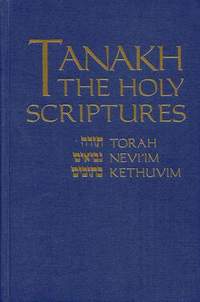

Opening the Old Testament (Tanakh)

 After the physical resurrection and the initial scepticism of the apostles towards the women witnesses, followed by Peter seeing for Himself that the Master's body was gone (Luke 24:9-12), another "opening" too place:
After the physical resurrection and the initial scepticism of the apostles towards the women witnesses, followed by Peter seeing for Himself that the Master's body was gone (Luke 24:9-12), another "opening" too place:
"Now that same day two of them (disciples) were going to a village called Emmaus, about seven miles from Jerusalem. They were talking with each other about everything that had happened. As they talked and discussed these things with each other, Yah'shua (Jesus) himself came up and walked along with them; but they were kept from recognizing Him. He asked them, "What are you discussing together as you walk along?" They stood still, their faces downcast. One of them, named Cleopas, asked Him, "Are you only a visitor to Jerusalem and do not know the things that have happened there in these days?" "What things?" He asked. "About Yah'shua (Jesus) of Nazareth," they replied. "He was a prophet, powerful in word and deed before Elohim (God) and all the people. The chief priests and our rulers handed Him over to be sentenced to death, and they crucified Him; but we had hoped that He was the one who was going to redeem Israel. And what is more, it is the third day since all this took place. In addition, some of our women amazed us. They went to the tomb early this morning but didn't find His body. They came and told us that they had seen a vision of angels, who said He was alive. Then some of our companions went to the tomb and found it just as the women had said, but Him they did not see." He said to them, "How foolish you are, and how slow of heart to believe all that the prophets have spoken! Did not the Messiah (Christ) have to suffer these things and then enter his glory?" And beginning with Moses and all the Prophets, he explained to them what was said in all the Scriptures concerning Himself" (Luke 24:13-27, NIV).
Just as Yah'shua (Jesus) explained the Old Testament (Tanak) to these sceptics, so it is important that someone who knows the scriptures can point out to us the truth about what this body of sacred writings says and predicts about the Messiah.
This is what happened to me too. Though I knew supernaturally that Yah'shua (Jesus) was Elohim (God), I was still a sceptical scientist when it came to the Bible. So I went to a Bible meeting where "coincidentally" a minister was explaining the prophecies about the coming of Yah'shua (Jesus) in the Old Testament. When I saw that it was statistically impossible for so many prophecies to be fulfilled minutely, my mind was converted to the Bible too and I stopped viewing it as a collection of human fables. Here are some of the prophecies that were fulfilled which Yah'shua (Jesus) showed to Cleopas and his companion. You'll have to dig into your Bible and study the passages for yourself so that you can be convinced, just as this sceptical atheistic scientist was, the prophecy is real and the Bible is reliable:

2A. Messianic Prophecies and Their Fulfillment Arranged Chronologically
Talmudic Judaism has had many messianic claimants, none of which have come remotely close to fulfilling all the messianic prophecies. The latest one, a Lubovicher from Israel, recently died and his followers have desperately tried to show that he rose from the dead after three days. Only Yah'shua (Jesus) son of Joseph has ever fulfilled all the messianic prophecies in the Tanakh.
| Prophecies | |
Fulfilment |
| Gen.3:15 |
Would be the offspring of a woman |
Gal.4:4 (Lk.2:7; Rev.12:5) |
| Gen.18:18 (Gen.12:3) |
Promised offspring of Abraham |
Ac.3:25 (Mt.1:1; Lk.3:34) |
| Gen.17:19 |
Promised offspring of Isaac |
Mt.1:2 (Lk.3:34) |
| Num.24:17 (Gen.28:14) |
Promised offspring of Jacob |
Lk.3:34 (Mt.1:2) |
| Gen.49:10 |
Will descend from the Tribe of Judah |
Lk.3:33 (Mt.1:2-3) |
| Isa.9:7 (11:1-5; 2 Sam.7:13) |
The heir to the throne of David |
Mt.1:1 (Mt.1:6) |
| Mic.5:2 |
Place of birth: Bethlehem Ephrathah |
Mt.2:1 (Lk.2:4-7) |
| Dan.9:25 |
Time of birth |
Lk.2:1-2 (Lk.2:3-7) |
| Isa.7:14 |
Born of a virgin |
Mt.1:18 (Lk.1:26-35) |
| Jer.31:15 |
Slaughter of infants |
Mt.2:16 (Mt.2:17-18) |
| Hos.11:1 |
Escape into Egypt |
Mt.2:14 |
| Isa.9:1-2 |
Ministry in Galilee |
Mt.4:12-16 |
| Deut.18:15 |
As a prophet |
Jn.6:14 (Jn.1:45; Ac.3:19-26) |
| Ps.110:4 |
As a Priest, like Melchizedek |
Heb.6:20 (Heb.5:5-6; 7:15-17) |
| Isa.53:3 (Ps.2:2) |
His rejection by Jews |
Jn.1:11 (Jn.5:43; Lk.4:29; 17:25; 23:18) |
| Isa.11:2 (Ps.45:7; Isa.113-4) |
Some of his characteristics |
Lk.2:52 (Lk.4:18) |
| Zec.9:9 (Isa.62:11) |
His triumphal entry |
Jn.12:13-14 (Mt.21:1-11; Jn.12:12) |
| Ps.41:9 |
Betrayed by a friend |
Mk.14:10 (Mt.26:14-16; Mk.14:43-45) |
| Zec.11:12 (11:13) |
Sold for thirty pieces of silver |
Mt.26:15 (Mt.27:3-11) |
| Zec.11:13 |
Money to be returned for a potter's field |
Mt.27:6-7 (Mt.27:3-5, 8-10) |
| Ps.109:7 |
Judas' position to be taken by another |
Ac.1:18-20 (Ac.1:16-17) |
| Ps.27:12 (Ps.35:11) |
False witnesses accuse him |
Mt.26:60-61 |
| Isa.53:7 (Ps.38:13-14) |
Silent when accused |
Mt.26:62-63 (Mt.27:12-14) |
| Isa.50:6 |
Struck and spit on |
Mk.14:65 (Mk.15:17; Jn.19:1-3; 18:22) |
| Ps.69:4 (Ps.109:3-5) |
Hated without cause |
Jn.15:23-25 |
| Isa.53:4-5 (Isa.53:6,12) |
Suffered vicariously |
Mt.8:16-17 (Rom.4:25; 1 Cor.15:3) |
| Isa.53:12 |
Crucified with sinners |
Mt.27:38 (Mk.15:27-28; Lk.23:33) |
| Ps.22:16 (Zec.12:10) |
Hands and feet pierced |
Jn.20:27 (Jn.19:37; 20:25-26) |
| Ps.22:6-8 |
Mocked and insulted |
Mt.27:39-40 (Mt.27:41-44; Mk.15:29-32) |
| Ps.69:21 |
Given gall and vinegar |
Jn.19:29 (Mt.27:34,48) |
| Ps.22:8 |
Hears prophetic words repeated in mockery |
Mt.27:43 |
| Ps.109:4 (Isa.53:12) |
Prays for his enemies |
Lk.23:34 |
| Zec.12:10 |
His side to be pierced |
Jn.19:34 |
| Ps.22:18 |
Soldiers cast lots for his clothes |
Mk.15:24 (Jn.19:24) |
| Ps.34:20 (Ex.12:46) |
Not a bone to be broken |
Jn.19:33 |
| Isa.53:9 |
To be buried with the rich |
Mt.27:57-60 |
| Ps.16:10 (Mt.16:21) |
His resurrection |
Mt.28:9 (Lk.24:36-48) |
| Ps.68:18 |
His ascension |
Lk.24:50-51 (Ac.1:9) |
2B. Suffering & Kingly Messiah Prophecies
Part of the confusion over messianic prophecies lies in the fact that there are two sets of them corresponsing to the Messiah's first and second advents separated historically by a large period of time. The table below shows the two sets that pertain to Yah'shua (Jesus):
Suffering Messiah Prophecies
(1st Advent) |
Kingly Messiah Prophecies
(2nd Advent) |
| Psalms 22:18 & 69:21 |
Psalms 2:6-8; 118:22; 68:18 |
| Isaiah 50:6; 52:14; 53:1-10 |
Isaiah 9:6-7; 32:1-3; 42:1-4 |
| Daniel 9:26 |
Daniel 2:44; 7:13-14; 5:2 |
| Zechariah 11:12; 12:10; 13:7 |
Zechariah 6:12-13; 9:9-10 |
| |
Jeremiah 23:5 |
| |
Micah 5:2 |
| |
Malachi 3:1 |
2C. Messianic Prophecies of the Book of Isaiah
Of all the Old Testament books, Isaiah contains the most comprehensive collection of prophecies on the Messiah. This book alone is enough to establish the Messiahship of Yah'shua (Jesus).
| History of Messiah |
Mission of Messiah |
Titles of Messiah |
Character of Messiah |
| Birth (7:14) |
Illuminator (9:2) |
Immanuel (7:14) |
Radiance (9:2; 42:6) |
| Family (11:1) |
Judge (11:3) |
Mighty God (El) (9:6) |
Wisdom (11:2) |
| Anointing (11:2) |
Reprover (11:4) |
Everlasting Father (9:6) |
Spiritual Discernment (11:3) |
| |
Lawgiver (42:4) |
Prince of Peace (9:6) |
Justice (11:4) |
| |
Liberator (42:7) |
Righteous King (32:1) |
Righteousness (11:5) |
| |
Burden-bearer (53:4) |
Divine Servant (42:1) |
Silence (42:2; 53:7) |
| |
Suffering Saviour (53:5) |
Arm of Yahweh (53:1) |
Gentleness (42:3) |
| |
Sin-bearer (53:6) |
Anointed Preacher (61:1) |
Perseverance (42:4) |
| |
Intercessor (53:12) |
Mighty Saviour (Yasha) (63:1) |
Vicarious Suffering (52:14; 53:10) |
| |
|
|
Compassion (53:4) |
| |
|
|
Meekness (53:7) |
| |
|
|
Sinlessness (53:9) |
| |
|
|
Saving Power (53:11) |
| |
|
|
Greatness (53:12) |
If, having worked your way through these scriptures, or if you'd like help while you go through them, find a Bible-believing minister who can answer any questions you may have about these things. It was working through such scriptures that thousands of first century Jews were convinced that Yah'shua (Jesus) was their long-awaited Messiah. Just as Yah'shua was more than willing to explain the scriptures to Cleopas and his companion, so there are many Bible-believing ministers who would be more than willing to show you too if you want assistance. This is what Philip did for the Ethiopian believer too (Acts 8:26-40) - you might like to read that passage too because here the apostle explains the meaning of Isaiah 53:7-8


Copyright © 2007 IAT Ministries - All Rights Reserved

